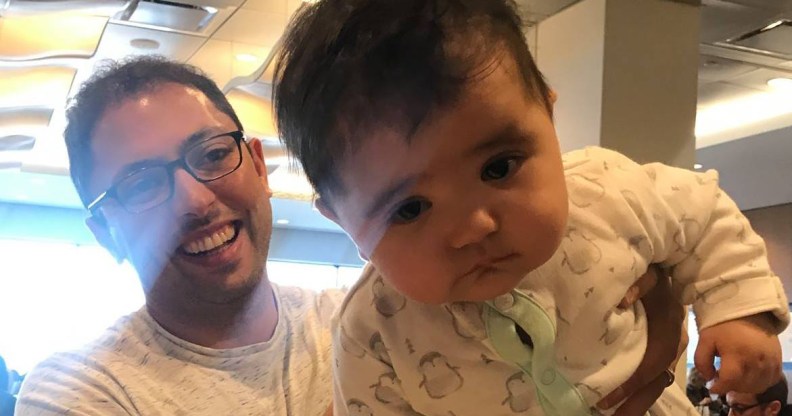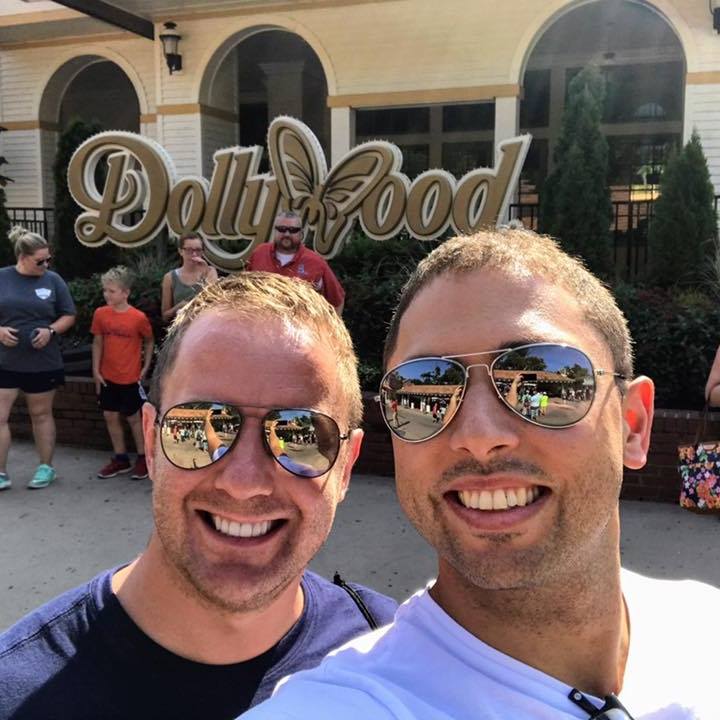Gay couple sue US government after baby denied citizenship

Jonathan Gregg with his daughter Simone. (Facebook)
A married gay couple are suing the US State Department after their baby born by a British surrogate was denied citizenship.
James Derek Mize and his husband Jonathan Gregg launched legal action on Tuesday (July 23) after they were told that their US citizenship could not be extended to their daughter Simone.
The one-year-old was born in UK to a close friend of the couple, using a donor egg and Gregg’s sperm.
Both Gregg, a US citizen born in the UK to an American mother, and his husband, born and raised in the US, are listed on Simone’s birth certificate and were present for the birth.
But when the family returned home to Atlanta, their request for Simone’s America passport was denied because of a flaw in State Department policy.
US policy discriminates against same-sex parents
Because Mize is not the child’s biological parent, Simone’s case was treated as being “out of wedlock,” with only Gregg’s status taken into account.
And because Gregg has not been living in the US for at least five years, it was ruled that his citizenship could not be transmitted to the couple’s child.

James Derek Mize and Jonathan Gregg have taken legal action. (Facebook)
“It’s shocking,” Mize told The New York Times.
“We’re both Americans; we’re married. We just found it really hard to believe that we could have a child that wouldn’t be able to be in our country.”
US citizenship rule shouldn’t apply to married couples
The couple’s lawyers say that if they had been treated as the married couple that they are, this five-year requirement would not have applied.
For married US citizens, “all the law requires is that one of them lived in America for at least one day,” said Aaron Morris, the executive director of Immigration Equality, which worked on the lawsuit.
To disenfranchise a little girl of citizenship because she has two dads is discrimination.
“Marriage is so fundamental to how you define a family,” he told The New York Times.
“To disenfranchise a little girl of citizenship because she has two dads is invidious discrimination that has been struck down time and time again.”

